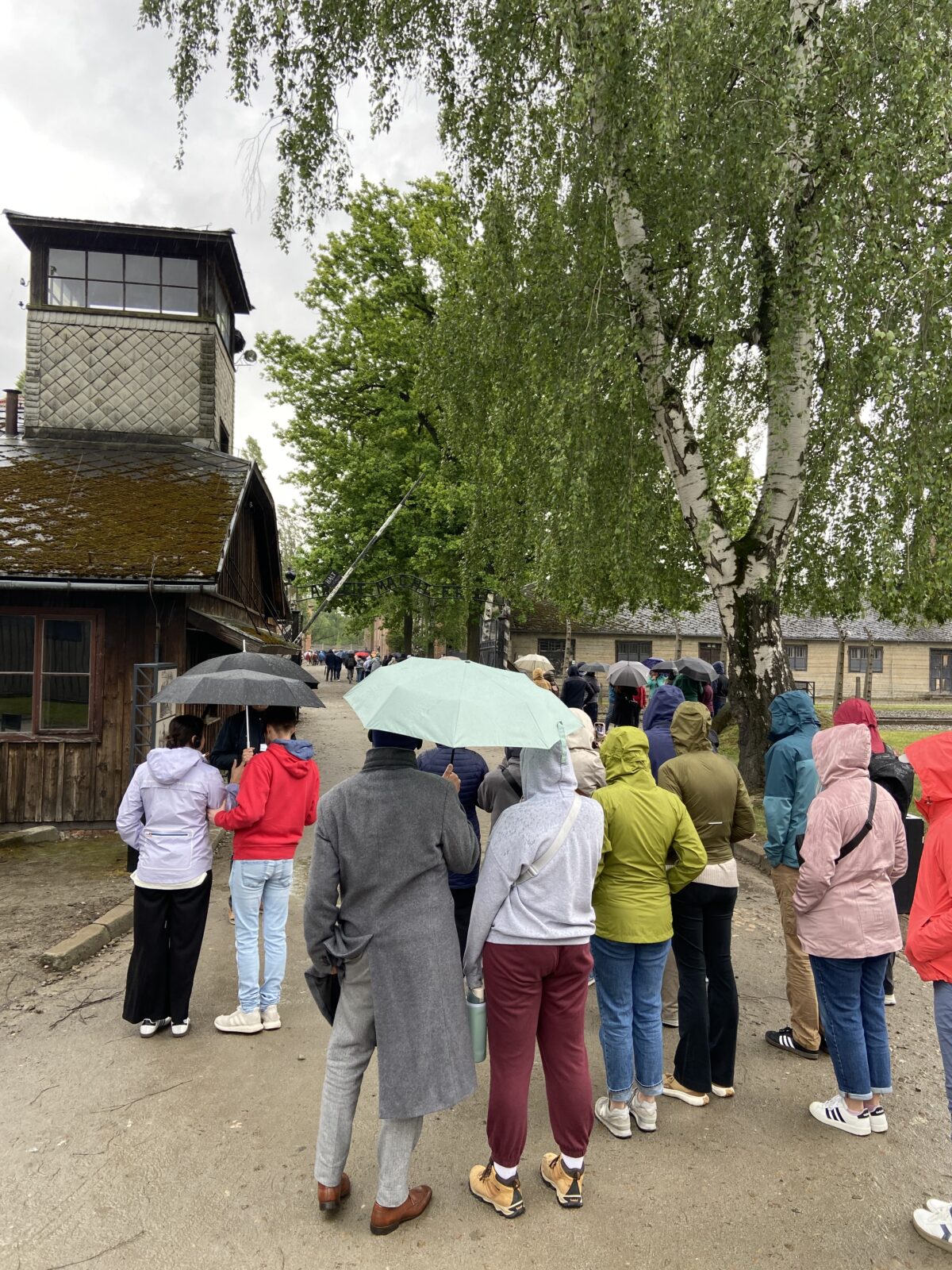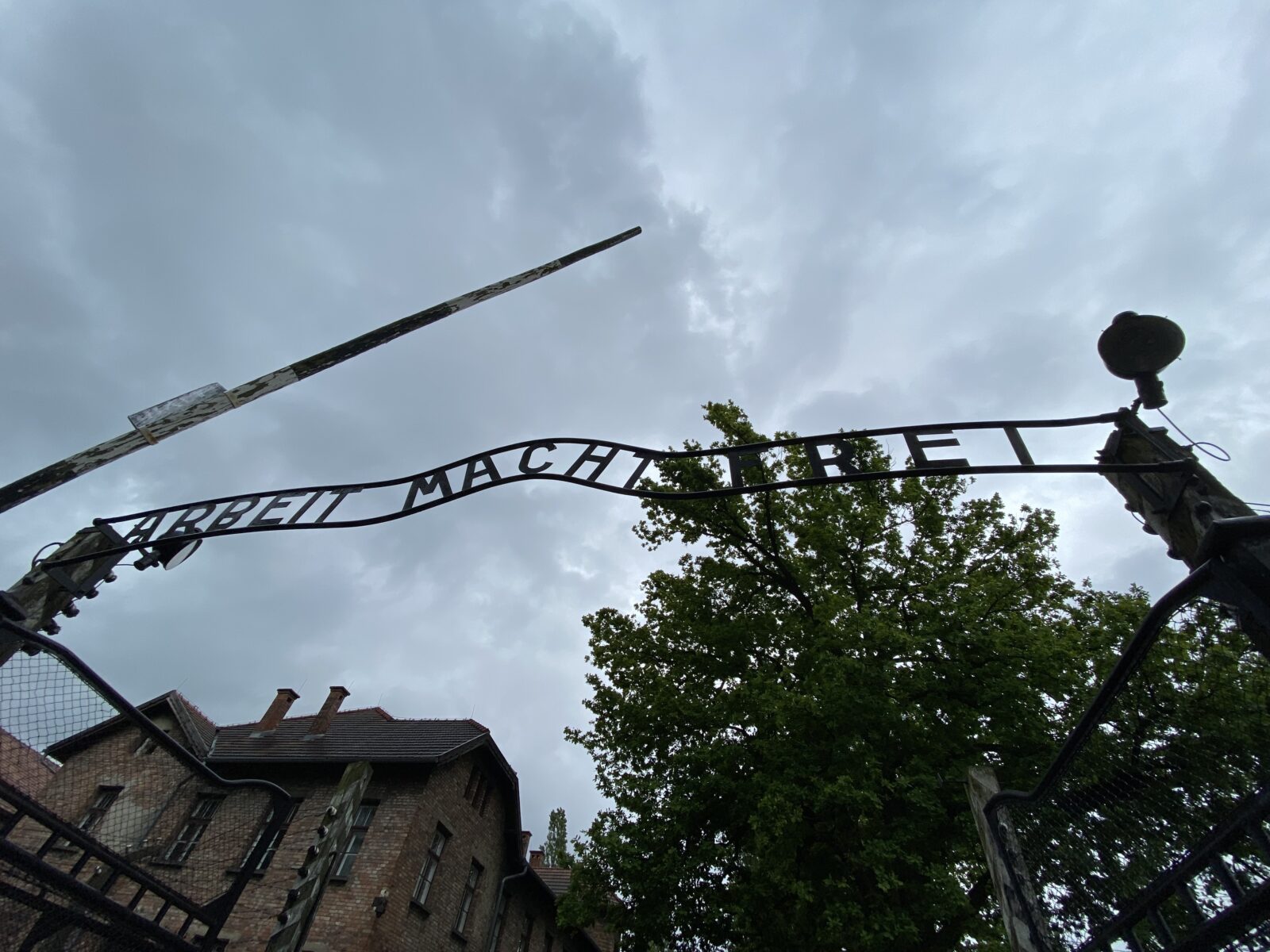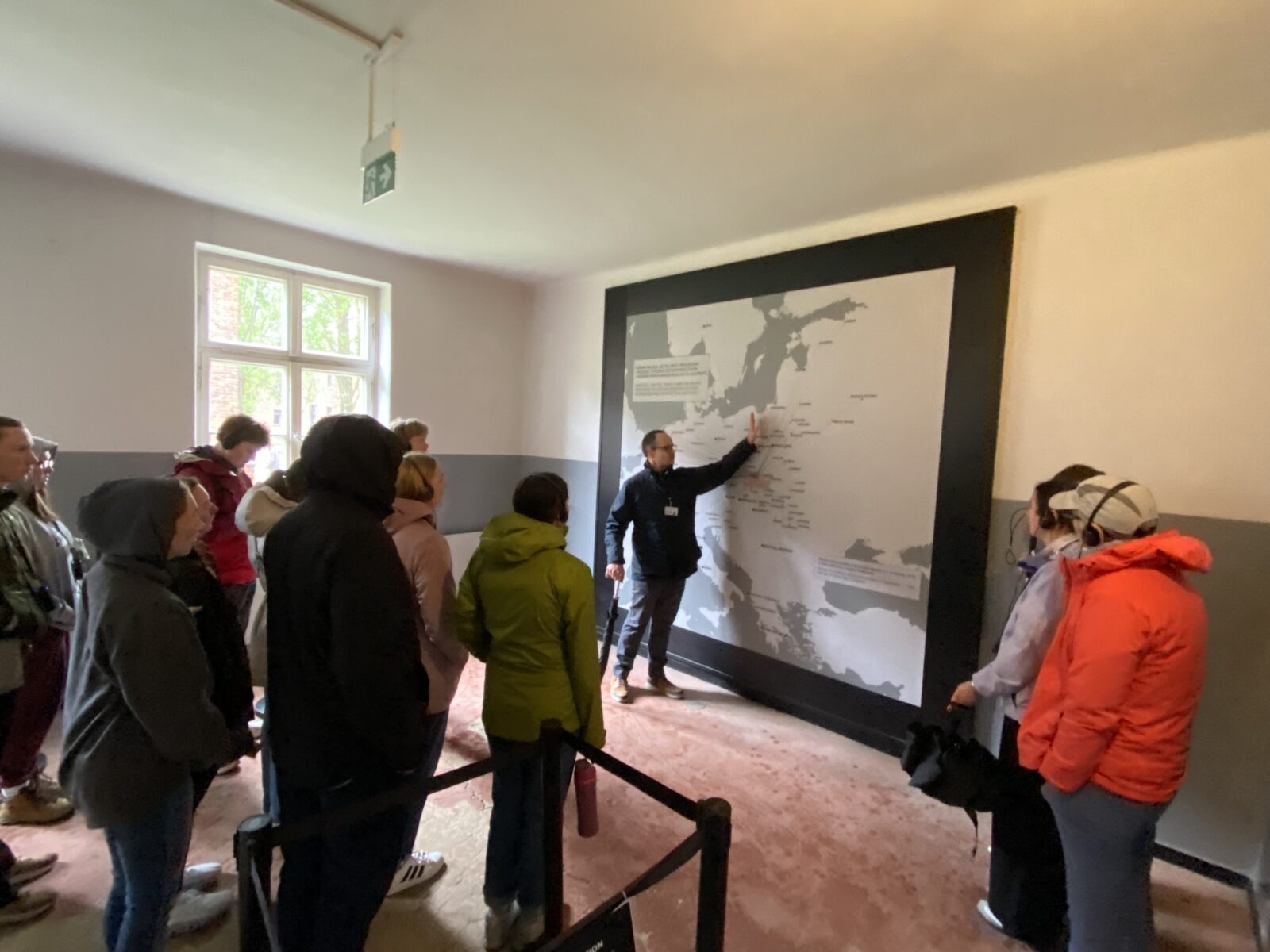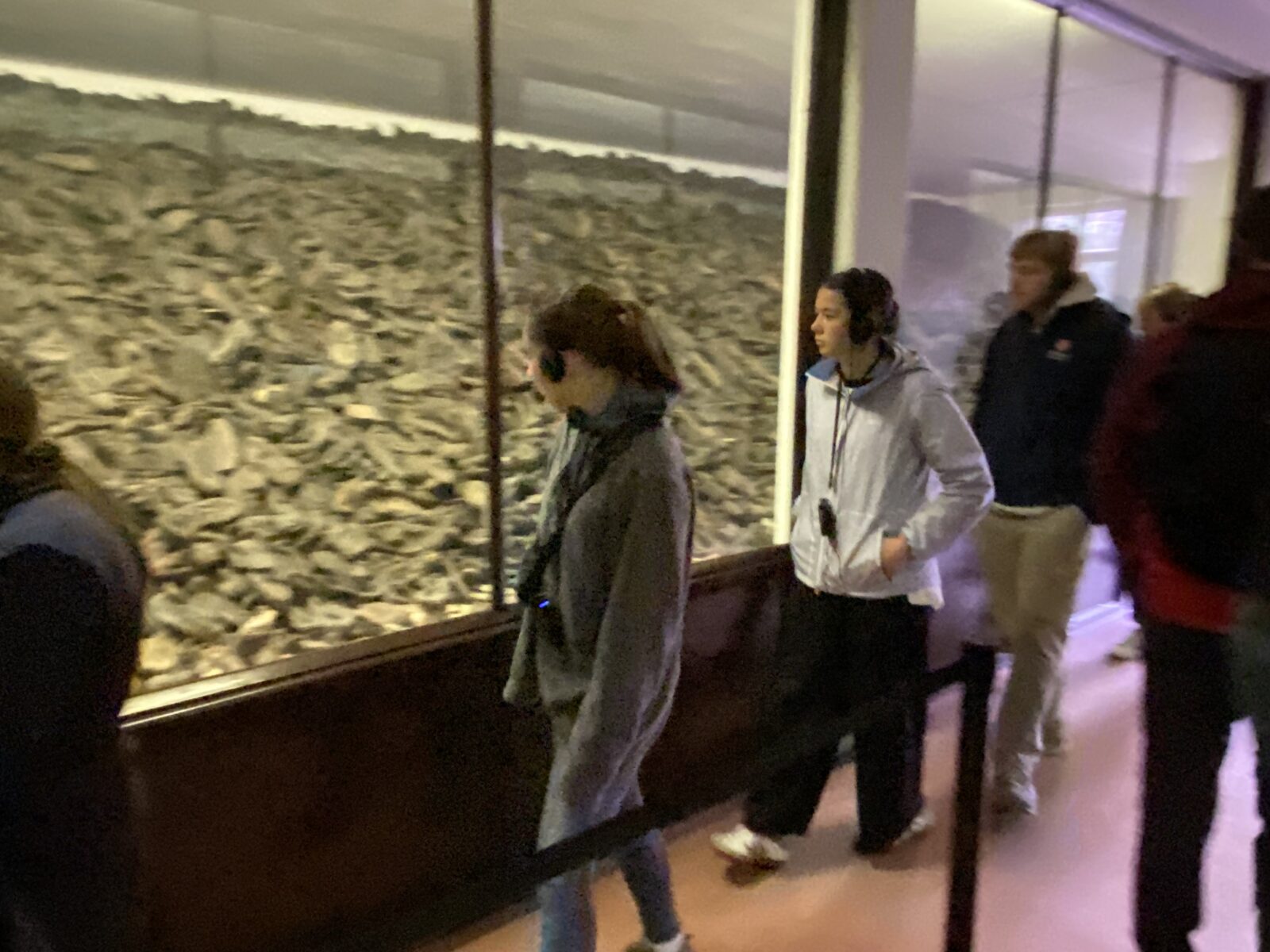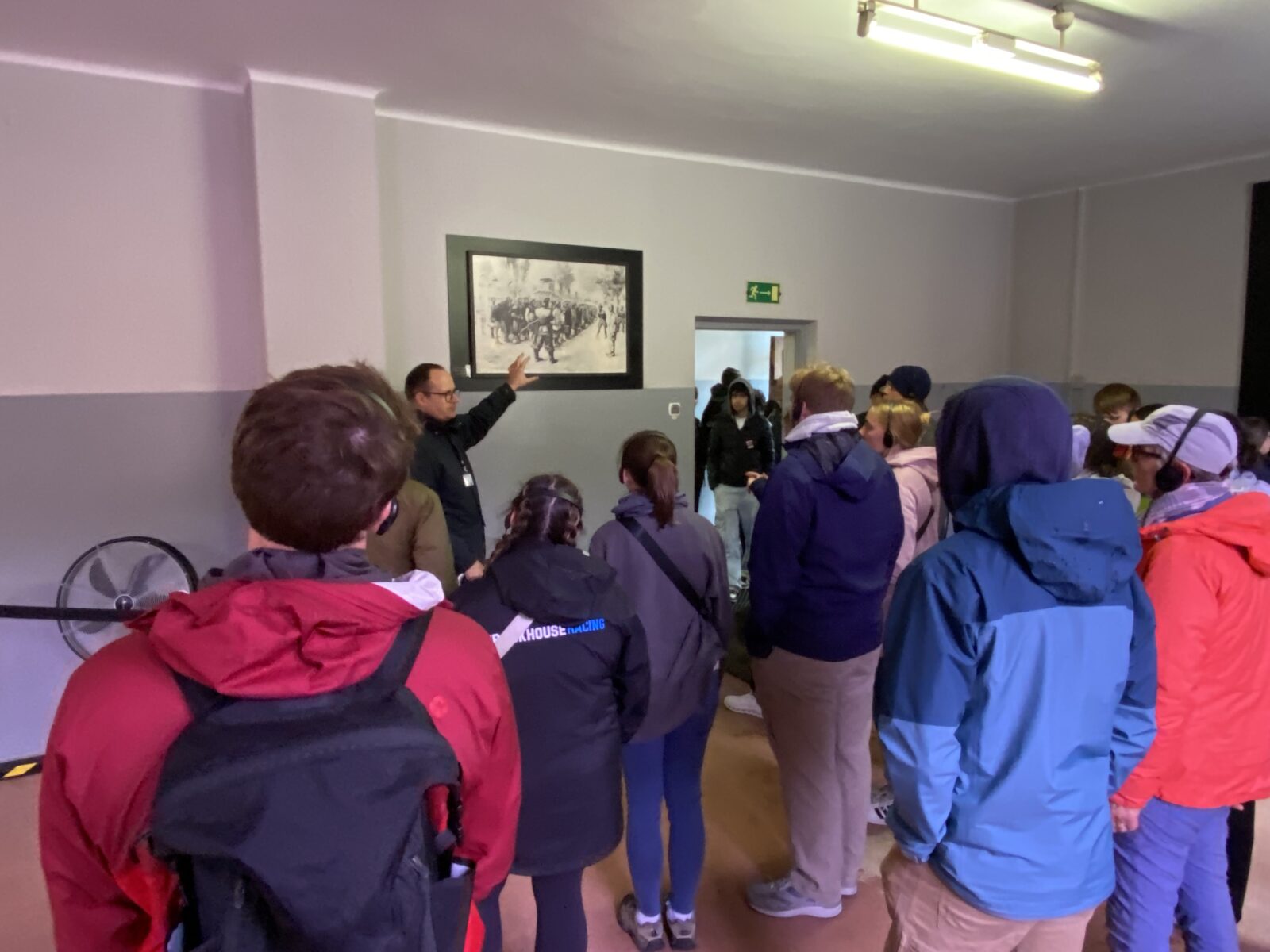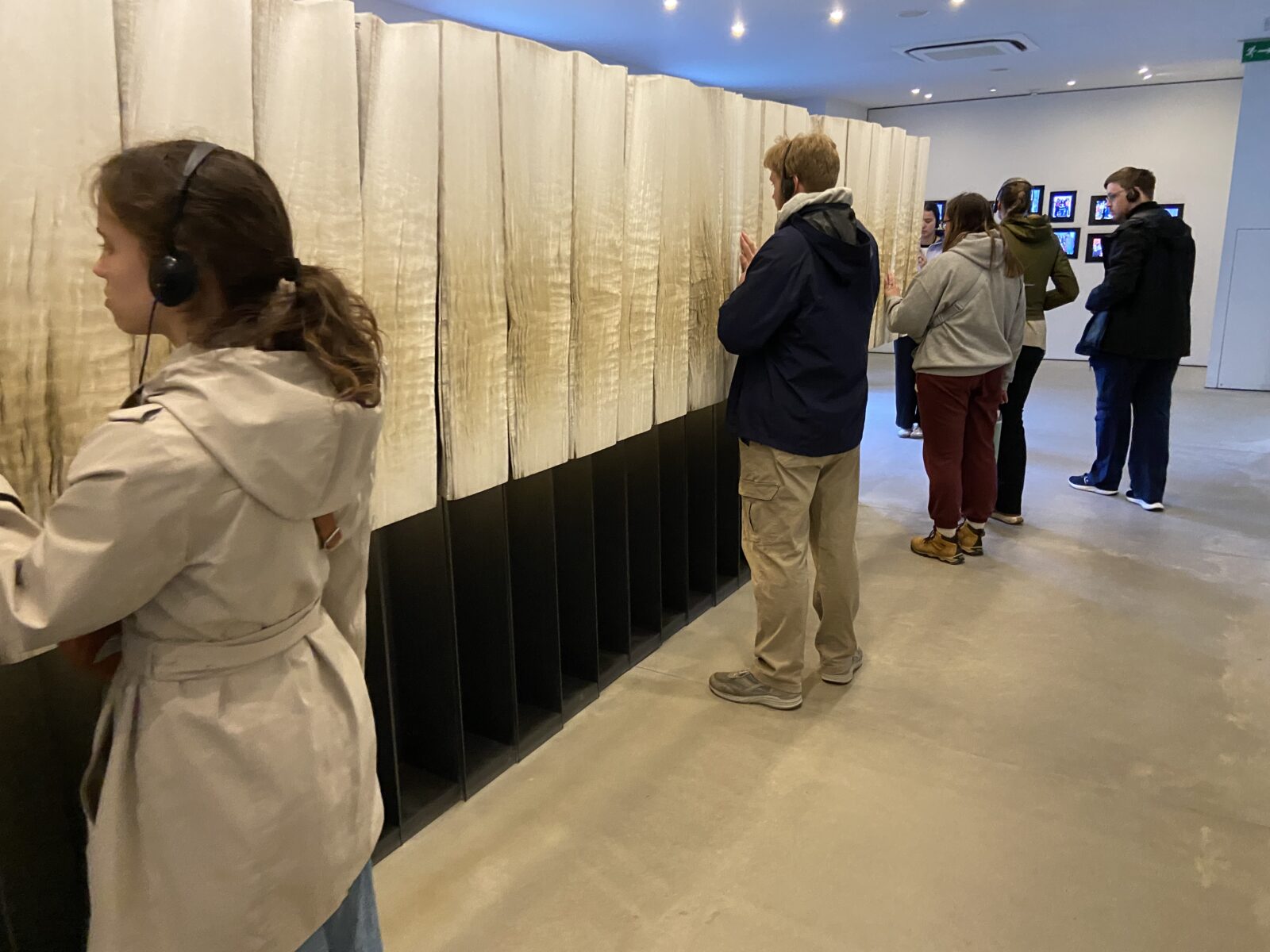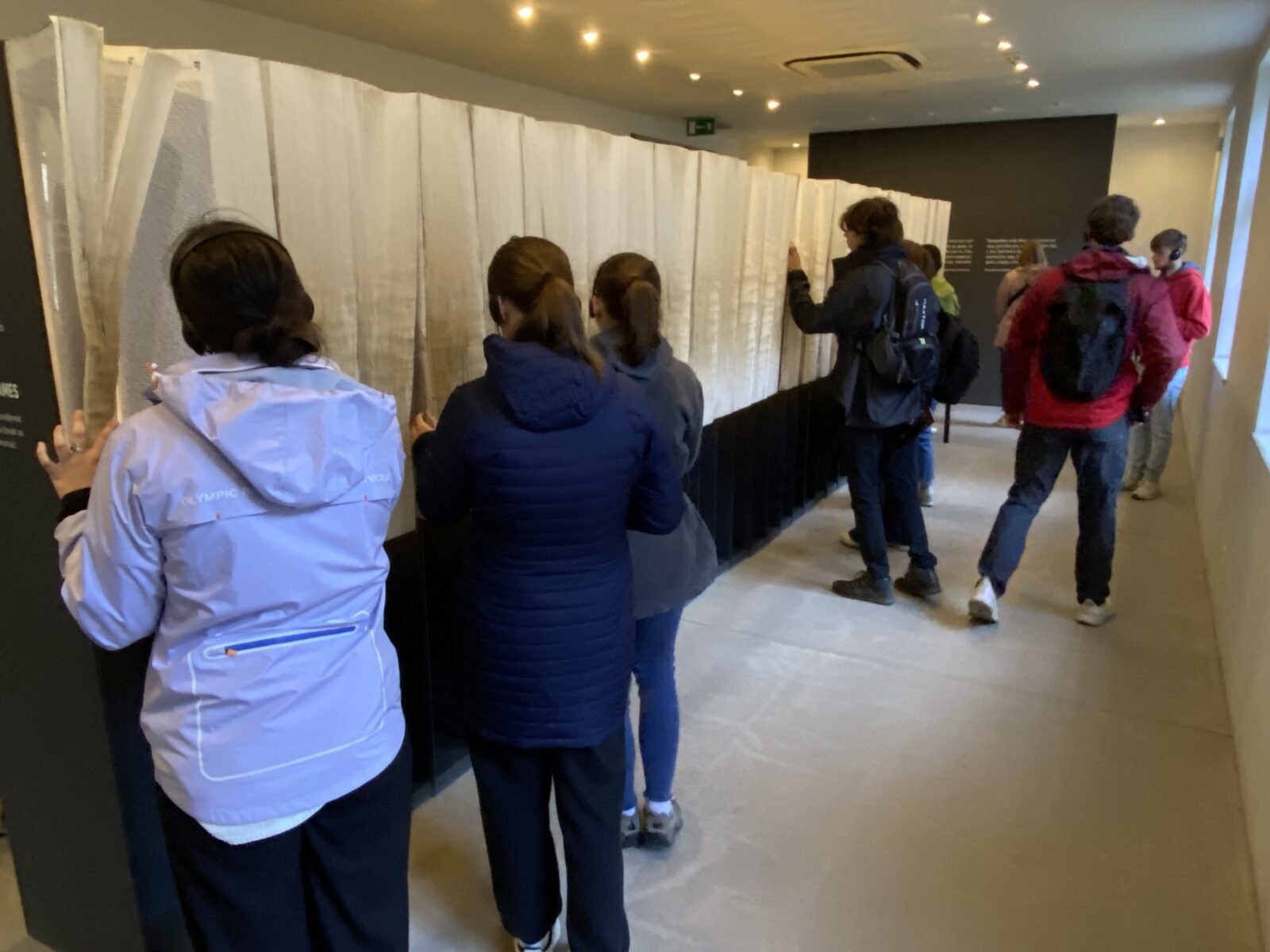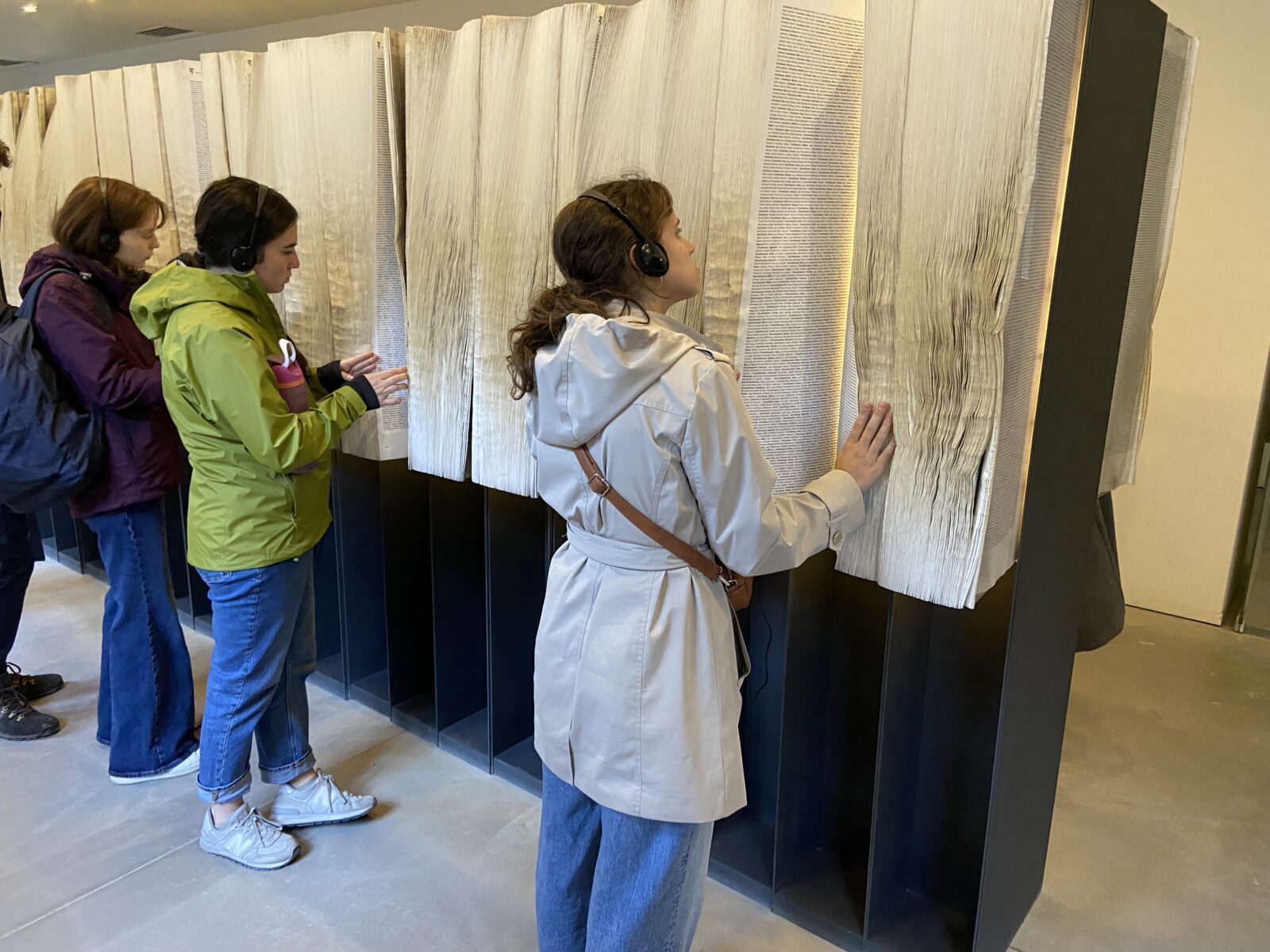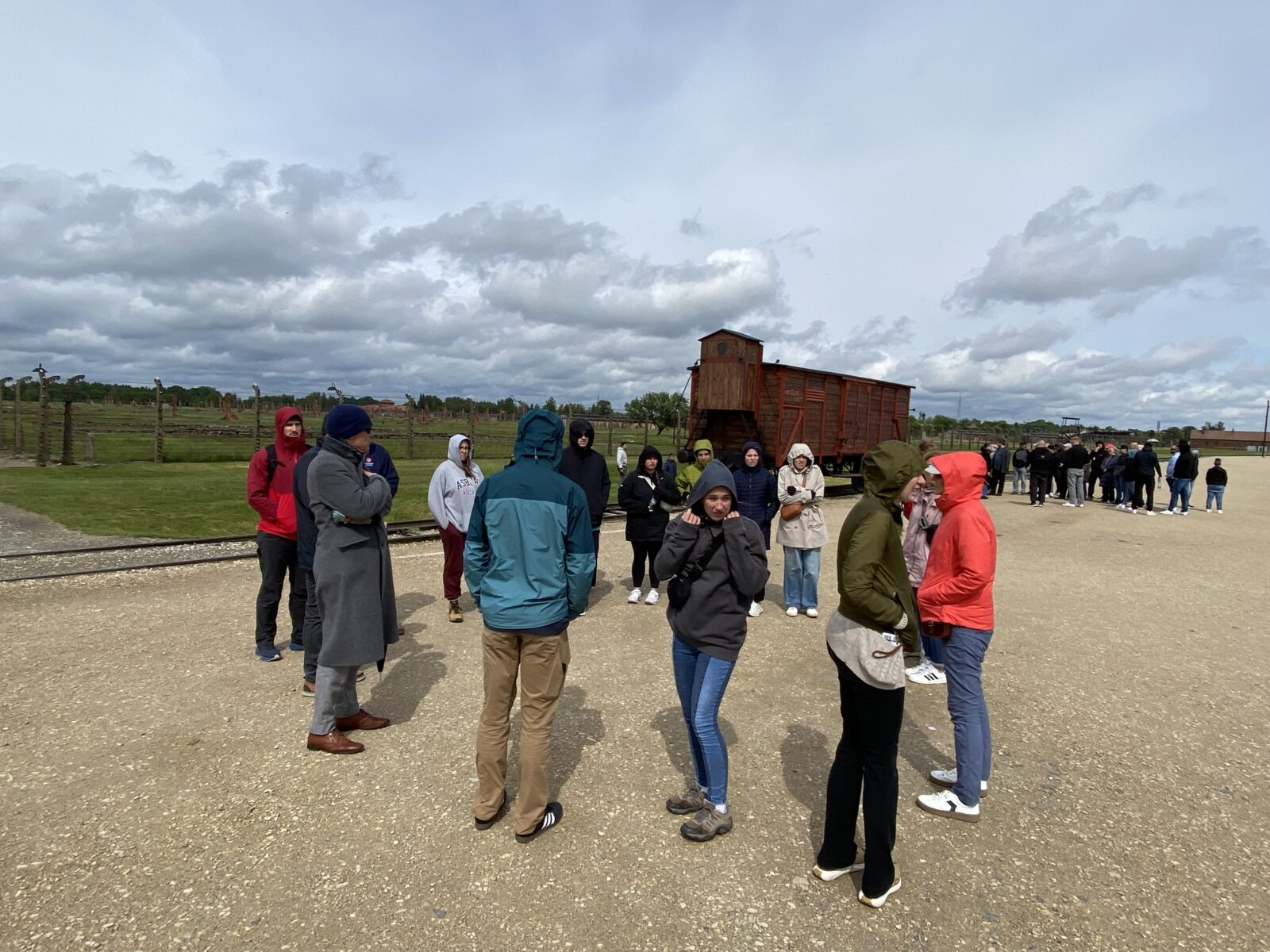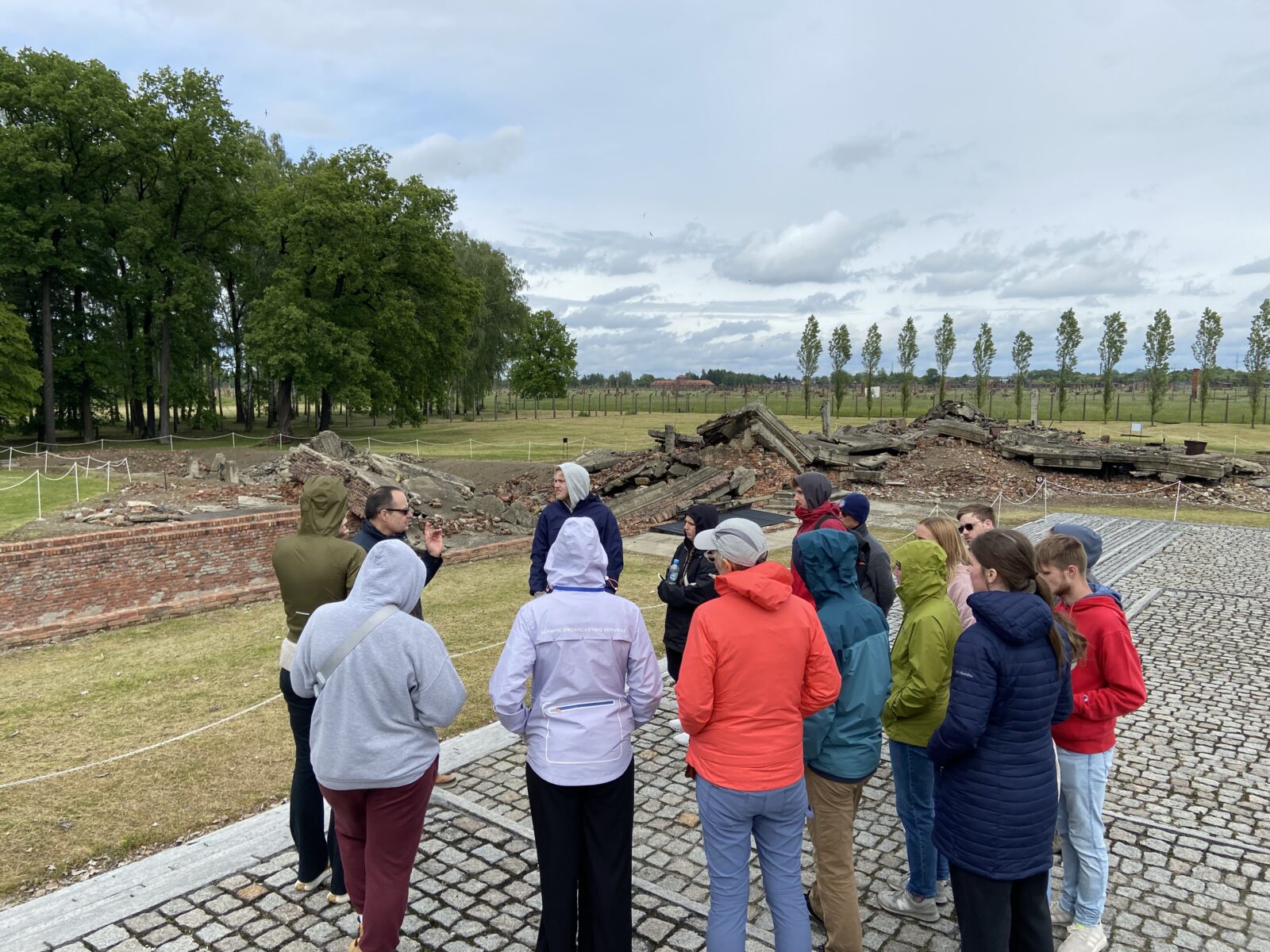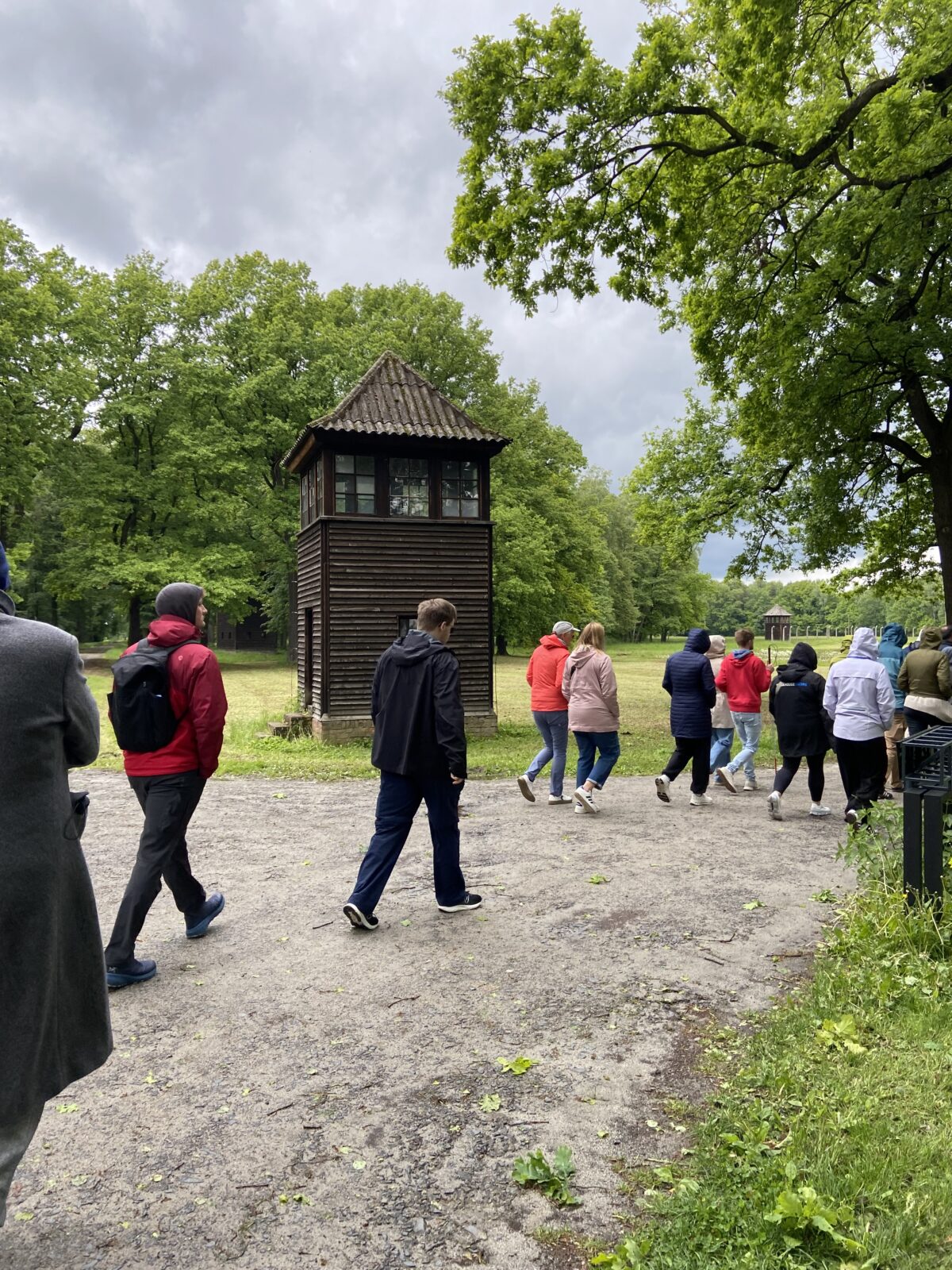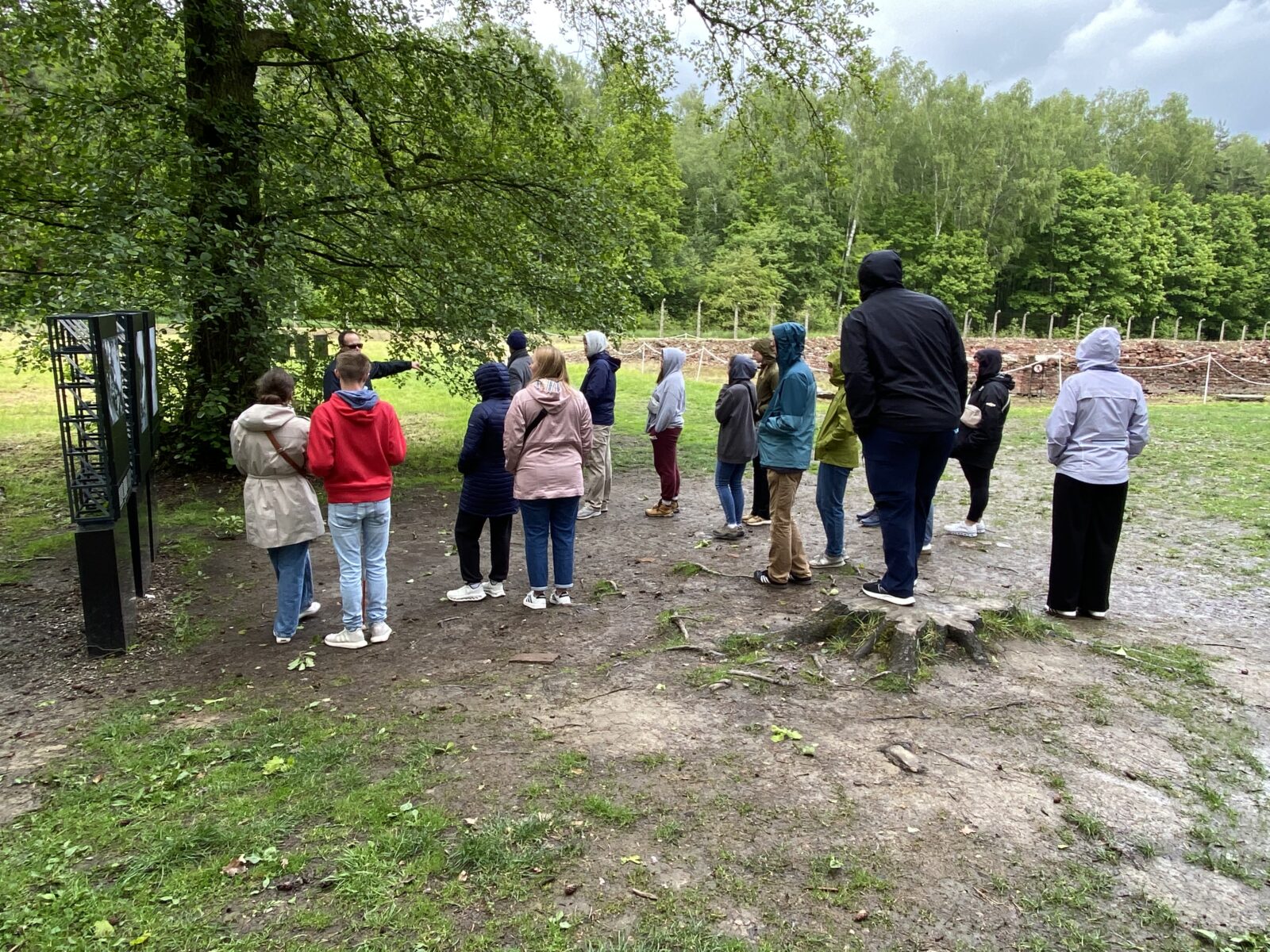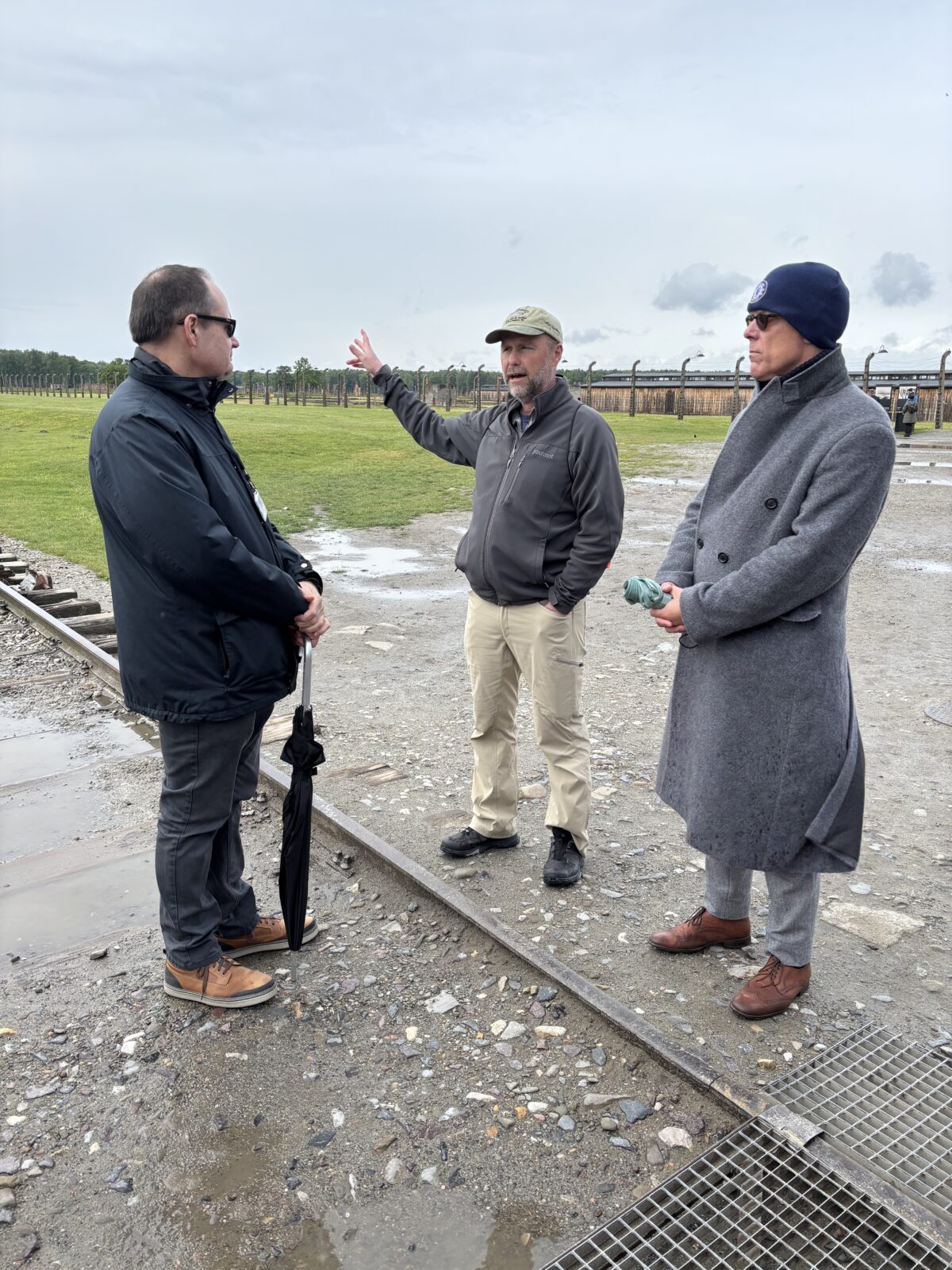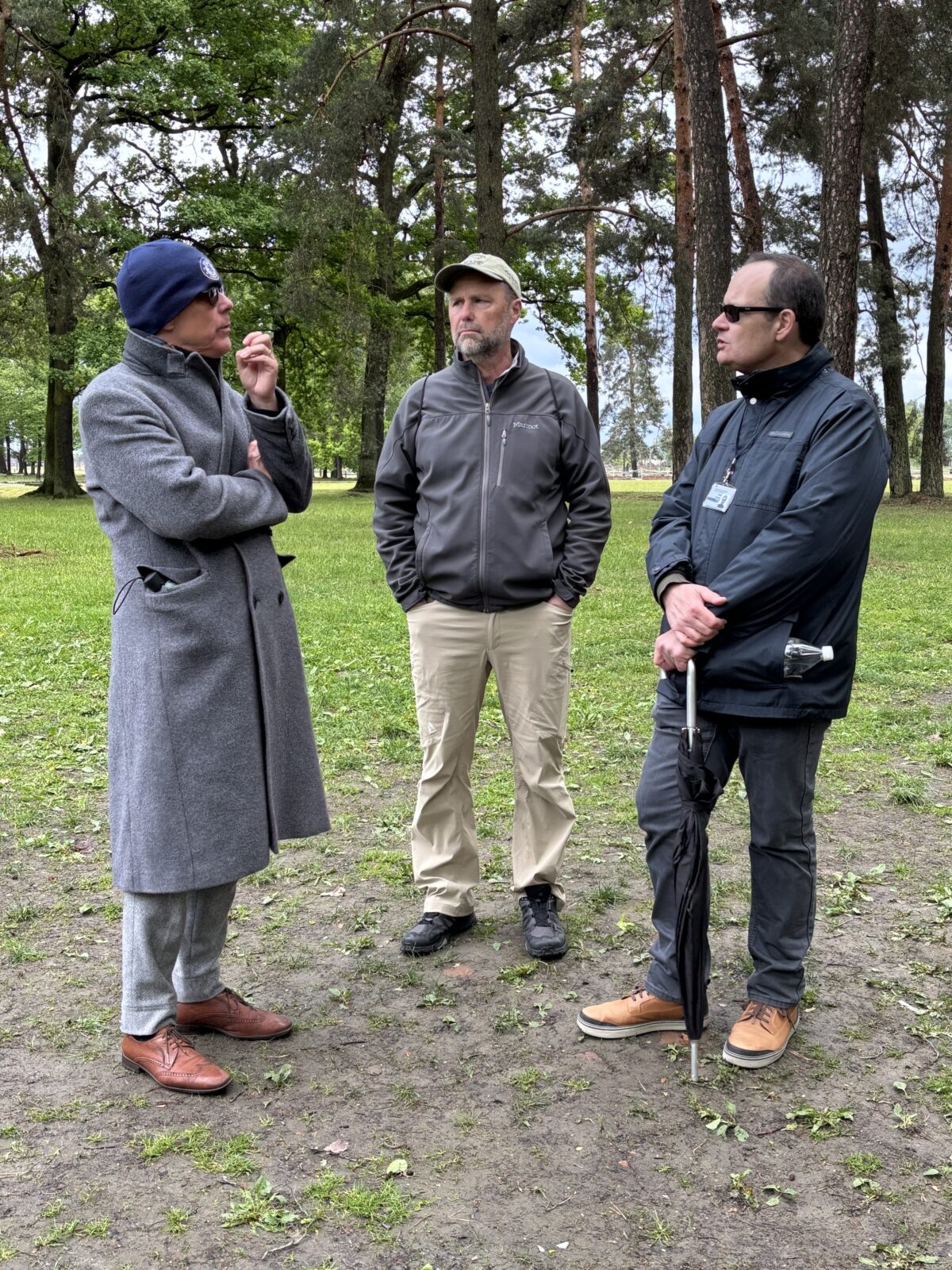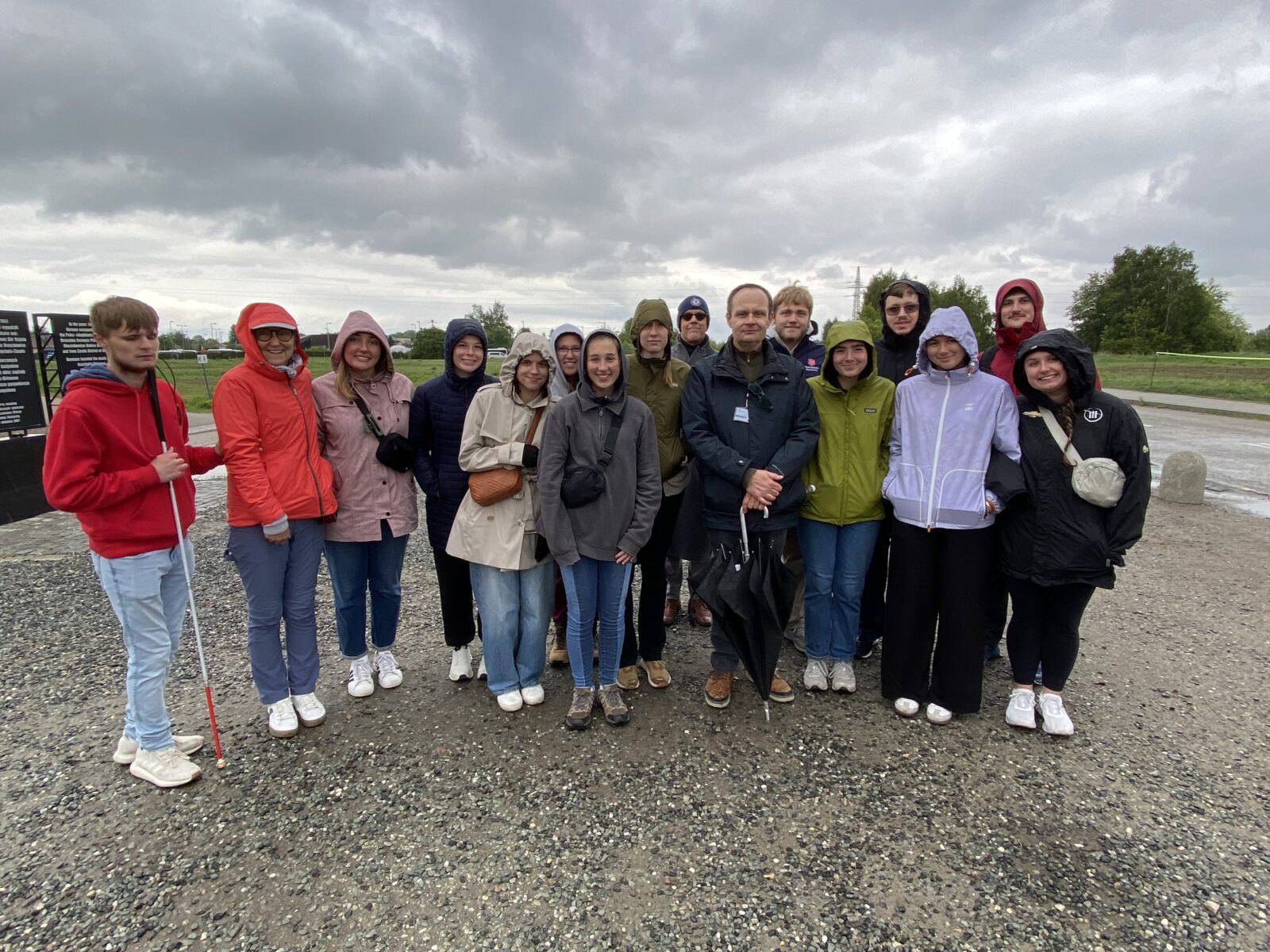Auschwitz I and II (Birkenau)
Today we traveled west out of Krakow to the Polish community of Oświęcim, a medium-sized city in the Silasian province of Poland that is known for its railroad crossings. The Nazis, after taking this town in the early days of the war, did what they did in countless other places, they sought to Germanize it by giving it a new name, Auschwitz.
We were met at the camp by my friend and expert tour guide, David Kennedy. It was fantastic to see him again – and to introduce him to my friend Christian Marx. The students also really appreciated David. He does such a fantastic job finding the right words coupled with the right demeanor to lead us through this ghastly place.
The weather was once again a challenge. In the morning, we contended with low temperatures, wind, and rain (even hail at one point). Thankfully, in the afternoon things lightened up quite a bit. The students, as they have all trip, showed determination and resilience. Today, for many reasons, we would need every ounce of it.
After returning, a chance to group process was presented and many of the students took-up this opportunity. Some of the topics we gravitated toward included an increased awareness of the magnitude of the suffering – as well as the magnitude of the physical place; a realized disconnect between our sense of suffering with the weather when compared to the victims’ exceedingly greater and unending suffering; an awareness (and fear) of our own capacity for evil, and the role of identification with a particular person versus the platitude of “love for all of humanity” (i.e., the way things got more intense for us when we could envision one of our family members or friends being victimized). Of course, things quickly got theological. The suffering of innocents (especially the children), the justness of God, and our inability to have logical answers to God’s relationship to what transpired here were genuine questions expressed by many. That the Christian God is a suffering God, however, was not lost on us – neither was the realization that scripture is replete with people calling out and crying out to God in the midst of their suffering. I should also add that we considered the prideful posture that sits behind our tendency to automatically identify with the victims as opposed to their tormentors. Not as compensation, but nonetheless as a recognition of some benefit, we considered some of the good that can be found in the midst of this terrible human story – like meeting new people and making new friends on account of this tour. Our time together was raw, honest, and unmistakably precious.
I might add that for my part, I was reminded of the “mixed picture” nature of reality. That we inhabit a world that exhibits both altruism and Auschwitz, beauty and barbed wire, (art) galleries and gas chambers. For those of us who believe the world is just – that good things happen to good people who have made good choices, and that bad things happen to bad people who have made bad choices, we were forced to recognize our error. We must be reminded that the wisdom literature in Scripture does not only contain the Proverbs, but also the Psalms and the book of Job. The questions of Auschwitz, as concentrated, recent, and unimaginable as they may be, have been a part of the human experience from the beginning.
Tomorrow will be our final full day together. We will have a wrap-up group session and a final meal together. Life pushes us forward and into different places, but a part of us has been bound together by our shared experiences these past two weeks…we humans are sticky, and when we pull apart the separation is not clean, and yet somehow we each increase in the process.
